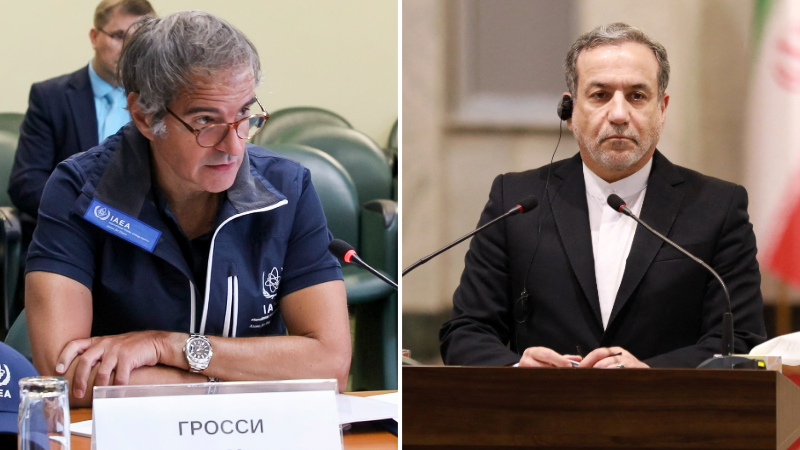
TEHRAN - Iran and the International Atomic Energy Agency (IAEA) have expressed their determination to continue bilateral interactions and collaborations, the Iranian Foreign Ministry said early Tuesday in a statement.
In a phone call on Monday night, Iranian Foreign Minister Seyed Abbas Araghchi and IAEA Director General Rafael Grossi exchanged views on the latest state of cooperation between the two sides within the framework of the safeguards agreement, said the ministry.
ALSO READ: Iran not to 'pay ransom' to West over nuclear program, says first vice-president
During the phone conversation, Araghchi strongly criticized the "unconstructive" actions by some of the members of the IAEA Board of Governors in late November to pass an anti-Tehran resolution, saying it undermined Grossi's efforts to achieve progress towards resolving the safeguards issues between Iran and the agency.
He emphasized that while Iran did not hesitate to respond decisively to such actions, the country was still ready and determined to cooperate constructively with the agency within the defined technical framework.
READ MORE: Iran denies violating Chemical Weapons Convention amid nuke talks
The IAEA chief, for his part, highlighted the agency's determination to continue "serious" interactions with Iran, stressing that he had held consultations with other sides within the framework of his responsibilities and authority to prepare the ground for the resolution of the existing problems.
The Board of Governors of the IAEA on Nov 21 passed a resolution that orders Iran to urgently improve cooperation with the agency and requests a "comprehensive" report aimed at pressuring Iran into fresh nuclear talks.
READ MORE: Iran condemns 'baseless' claims of G7 foreign ministers
In response to the resolution, Iran announced the following day the activation of a "substantial" number of new "advanced" centrifuges.
Iran signed the nuclear deal known as the Joint Comprehensive Plan of Action (JCPOA) with several major countries in 2015. The agreement imposed restrictions on Iran's nuclear program in exchange for sanctions relief.
However, the US government under then President Donald Trump withdrew from the agreement unilaterally in May 2018, reinstating sanctions and prompting Iran to scale back some of its nuclear commitments.



